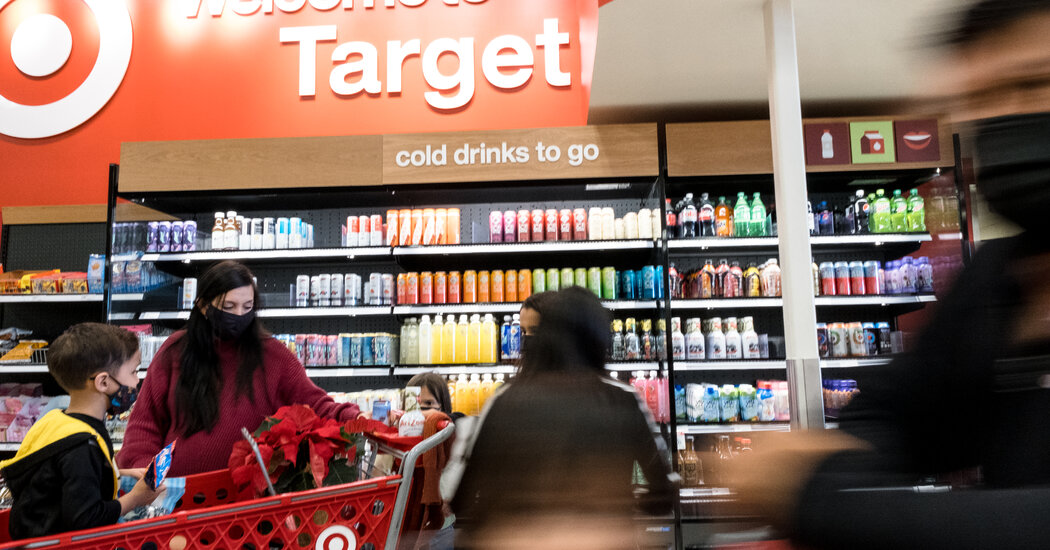Target plans to cut prices and cancel orders to clear out unwanted inventory, announcing a series of steps Tuesday to fight inflation and supply chain disruptions. The moves would cut earnings in the current quarter, the company said, pushing its shares down. Target’s share price closed 2.4 percent lower.
It’s the latest move from a major retailer showing how inflation and shifts in consumer habits are rapidly changing the outlook for business. Just three weeks ago, Target shocked investors with gains much worse than expected, causing the stock to fall nearly 25 percent. It lowered its earnings forecast then and cut it further on Tuesday.
Target, like many retailers that faced skyrocketing demand in the early months of the pandemic, stocked up as supply chains slowed shipments. But consumers are now turning away from goods such as furniture, appliances and other products to stay at home and spending more on experiences and going out.
Target’s balloon inventory reflects a mix of merchandise that hasn’t — or can’t, for supply chain reasons — keep up with this shift. “Trends have changed rapidly since the beginning of the year,” the company said in its statement. It said it planned to add storage capacity near ports to store more goods and open more distribution centers to “add flexibility and speed” in the supply chain.
“It’s certainly a surprise,” said Michael Baker, a general manager and senior retail analyst at DA Davidson. “Not only did they over-inventory — a lot of their competitors over-stocked, too, and that’s what they miscalculated.”
As other big-box stores are now also trying to reduce inventory, Target will “have to be aggressive with price cuts,” he added.
Even President Biden weighed in on Target’s trials and tribulations, saying in a statement mainly on the trade deficit that “one of the country’s largest retailers has announced it will take swift action to lower prices for certain goods,” raising the potential. effect of the company’s price reductions is enhanced. could have a bearing on curbing stubbornly high inflation. (He left the impact on Target’s profit margins unspoken.)
Target’s warning on Tuesday followed last month’s disappointing earnings report, which included an unexpectedly large stock increase. That came shortly after Walmart announced similarly dismal earnings, dented by higher labor and fuel costs. Those reports caused the S&P 500 to fall, briefly dragging it into bear market territory, defined as a 20 percent drop from a recent peak.
Shares have since recovered somewhat and markets appeared more resilient on Tuesday than when Target announced its earlier profit warning: After an initial swing, the S&P 500 ended the day slightly higher. Mr. Baker sensed a hint of optimism in investor response, with Target’s stock avoiding the nosedive it took and the broader market seemingly following the news closely.
There are also some promising signs for retailers: Discounters and brands serving higher-income buyers have recently reported gains exceeding Wall Street expectations, suggesting that middle-market businesses are most at risk of coming under pressure. . Dollar Tree and Dollar General prepared their forecasts for the year as shoppers sought lower prices and moved away from more expensive brands. At the same time, Nordstrom said shoppers are updating their wardrobes with clothing for “highly anticipated occasions,” and Macy’s said luxury goods sales were strong.

